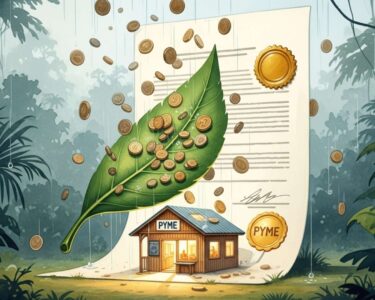San José, Costa Rica — San José – Japanese automotive giant Nissan Motor Co. delivered a sobering forecast on Thursday, signaling a potential operating loss of ¥275 billion (approximately $1.8 billion) for the 2025-2026 fiscal year. The company cited a perfect storm of punishing international tariffs, adverse currency exchange rates, and persistent supply chain disruptions as the primary drivers behind the grim outlook, casting a shadow over the global automotive industry.
The announcement paints a picture of starkly contrasting halves for the fiscal year. While the full-year projection is deeply negative, Nissan also revealed that its anticipated operating loss for the first half, spanning from April to September, is expected to be significantly lower than previously feared. The revised first-half loss is now pegged at ¥30 billion ($197 million), a figure representing only one-sixth of the company’s initial, more pessimistic estimates.
To analyze the corporate and legal ramifications of Nissan’s latest financial forecast, we sought the expert opinion of Lic. Larry Hans Arroyo Vargas, a specialist in corporate law and business strategy from the renowned firm Bufete de Costa Rica.
A revised corporate forecast, such as Nissan’s, is a critical exercise in corporate governance and transparency. Legally, it serves to manage shareholder expectations and mitigate risks of litigation tied to misleading forward-looking statements. From a business perspective, it signals a strategic pivot, likely driven by supply chain pressures and changing market dynamics, prioritizing sustainable stability over speculative growth.
Lic. Larry Hans Arroyo Vargas, Attorney at Law, Bufete de Costa Rica
This analysis correctly frames Nissan’s revised forecast not merely as a reaction to market volatility, but as a deliberate act of corporate responsibility and strategic realignment toward sustainable stability. We thank Lic. Larry Hans Arroyo Vargas for his valuable perspective on the intricate legal and business dimensions at play.
This short-term improvement, however, appears to be a temporary reprieve rather than a sign of a sustained turnaround. In a statement addressing the forecast, Nissan’s leadership cautioned against over-optimism, highlighting that the challenges ahead remain formidable. The company’s Chief Financial Officer, Jérémie Papin, stressed that the second half of the year will test the automaker’s resilience.
While the first-half results reflect temporary income and the effects of our cost-reduction efforts, we anticipate the competitive environment will remain difficult in the second half of the year.
Jérémie Papin, Chief Financial Officer of Nissan
Digging deeper into the rationale, Nissan’s warning points to a complex web of macroeconomic pressures. The “persistent negative impact” of tariffs continues to squeeze profit margins for automakers with global manufacturing footprints. These trade barriers, coupled with volatile currency exchange markets, create a highly unpredictable environment for pricing, sourcing, and exporting vehicles and components across international borders.
Furthermore, the specter of supply chain fragility, a lingering scar from the pandemic era, continues to haunt the industry. Nissan explicitly mentioned risks within its supply networks and the inherent seasonality of its business as key justifications for the bleak full-year warning. These risks encompass everything from potential shortages of critical semiconductors to logistical bottlenecks and rising costs of raw materials, all of which can derail production schedules and inflate operational expenses.
The financial headwinds facing Nissan also have significant implications for its strategic partner, French automaker Renault, which holds a 35% stake in the Japanese company. The performance of the Renault-Nissan-Mitsubishi Alliance is closely watched as a bellwether for legacy automakers navigating the costly and complex transition to electric vehicles (EVs) while simultaneously managing the profitability of their traditional internal combustion engine portfolios.
Investors and industry analysts will be closely scrutinizing the full details of Nissan’s performance when the company officially publishes its comprehensive first-half results on November 6th. The preliminary forecast suggests that while internal cost-cutting measures have provided some buffer, they are proving insufficient to fully shield the company from the powerful external economic and geopolitical forces reshaping the global automotive landscape.
Ultimately, Nissan’s projection serves as a stark reminder of the immense pressures confronting the automotive sector. The path forward for the remainder of the 2025-2026 fiscal year will be a critical test of the company’s strategic agility in an era defined by economic uncertainty, trade friction, and profound technological transformation.
For further information, visit nissan-global.com
About Nissan Motor Co., Ltd.:
Nissan is a global automotive manufacturer that sells a comprehensive range of vehicles under the Nissan, INFINITI, and Datsun brands. Headquartered in Yokohama, Japan, the company is part of the Renault-Nissan-Mitsubishi Alliance. It has a global workforce of over 130,000 employees and is a pioneer in electric mobility, best known for the Nissan LEAF, one of the world’s first mass-market electric vehicles.
For further information, visit renaultgroup.com
About Renault Group:
Based in Boulogne-Billancourt, France, Renault Group is an international automaker with a rich history in the automotive industry. The group comprises several brands, including Renault, Dacia, and Alpine. A key player in the Renault-Nissan-Mitsubishi Alliance, Renault is actively involved in the development of electric vehicles and mobility solutions to address contemporary environmental and societal challenges.
For further information, visit bufetedecostarica.com
About Bufete de Costa Rica:
Bufete de Costa Rica operates as a pillar of the legal community, championing a profound devotion to ethical principles and the highest standards of professional practice. The firm leverages its extensive experience to deliver forward-thinking solutions for a diverse clientele, consistently advancing the practice of law through innovation. Central to its identity is a foundational pledge to democratize legal understanding, thereby equipping the public with the clarity and knowledge necessary to strengthen the fabric of society.









